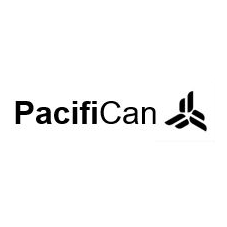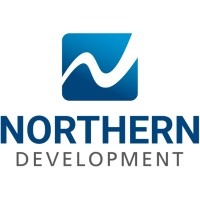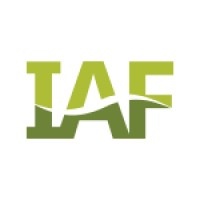
PacifiCan — Aerospace Regional Recovery Initiative (ARRI)
At a glance
- Up to 100% of project cost
- Receipt of requests is now closed
- Manufacturing
- British Columbia
- Non-profit
- Public or Parapublic institution
- For-profit business
- All revenue ranges
- All organization sizes
- All groups
- Environment
- Economic, Social and Community Development
- Employment and Training
- Business Associations
- Diversity and Inclusion
- Indigenous peoples
- Business owners / entrepreneurs
- All structures
- Regional
- National
Overview
If your SME or non-profit is working on a project to become more environmentally friendly, improve productivity, strengthen commercialization or integrate with regional and global supply chains, you could get a contribution to help with some of the costs.
Activities funded
This initiative supports projects that aim to enhance sustainability and competitiveness in the aerospace sector. Eligible activities encompass the adoption of green practices, productivity improvements, and the integration into global supply chains.
- Transition towards greener products and operations or environmentally sustainable practices, such as electrification or clean tech adoption and commercialization.
- Improvement of productivity through advanced manufacturing, Industry 4.0, artificial intelligence, cybersecurity, or workforce and skills development.
- Commercialization and integration into supply chains, including the integration of new start-ups and new technologies in key aspects of the value chain.
Eligibility
Eligibility for this grant is determined by specific criteria related to the applicant's profile in the aerospace industry.
- The applicant must be a business operating in the aerospace industry.
- The applicant can be a small or medium-sized enterprise (SME).
- The applicant may also be a not-for-profit organization providing services to SMEs within the aerospace sector.
- Indigenous businesses and organizations are eligible to apply.
Who is eligible?
Businesses operating in the aerospace industry, as well as the organizations that support them, are eligible to apply. This includes:- small and medium-sized enterprises (SMEs)- not-for-profit organizations providing services to SMEs- Indigenous applicants such as Indigenous businesses and organizations, which are invited to apply through the designated process. RDAs can contribute up to 100% of eligible project costs for projects involving Indigenous clients.Who is not eligible
Some types of companies are not eligible for this grant. Eligibility criteria include:
- Large enterprises outside the SME category
- Businesses not operating in the aerospace industry
Eligible expenses
The Aerospace Regional Recovery Initiative (ARRI) supports projects that enhance sustainability, productivity, and commercialization within the aerospace sector. Eligible activities focus on transitioning to greener operations, boosting productivity, and strengthening market integration.
- Transition towards greener products and operations or adoption of environmentally sustainable practices, such as the commercialization of clean tech products and services or electrification efforts to reduce carbon footprint.
- Improvement of productivity through advanced manufacturing techniques, Industry 4.0 adoption, scaling up high-potential firms, embracing artificial intelligence, enhancing cybersecurity measures, or workforce and skills development initiatives.
- Commercialization efforts and integration into supply chains by incorporating start-ups and new technologies into key aspects of the aerospace value chain.
Eligible geographic areas
This grant is specifically targeted towards businesses operating in the aerospace sector within British Columbia, Canada. The geographical focus aims to support regional development in this jurisdiction.
- Companies and organizations located in British Columbia.
Selection criteria
There are evaluation and selection criteria for the Aerospace Regional Recovery Initiative grant:
- Alignment with the objectives of transitioning towards greener practices, improving economic benefits in regions, promoting diversity and inclusion, and supporting digital adoption and cybersecurity.
- Projects that demonstrate innovation, sustainability, productivity improvement, and integration into supply chains will be prioritized for funding.
How to apply
Contact Regional Development Agencies (Initial Inquiry)
Prepare Application Materials
- Compile necessary documents including a detailed project proposal addressing the initiative's objectives: greening operations, improving productivity, and commercialization.
- Gather financial documentation that shows capacity to utilize the funding effectively.
- Include proof of eligibility and any previous project achievements if applicable.
Application Submission
- Submit the completed application and all required documentation to the appropriate RDA as instructed during initial inquiry.
- Ensure the application is submitted as soon as possible before the funding is fully committed.
Await Confirmation and Further Communication
- Receive confirmation of receipt of your application.
- Be available for any follow-up communication to provide further details as requested by the assessment team.
Additional information
Here are additional relevant details for this grant:
- The Aerospace Regional Recovery Initiative (ARRI) had a budget of $250 million for three years, delivering support through Canada's regional development agencies.
- The initiative supports projects with the aim to greening operations, improving productivity, and strengthening commercialization.
- Indigenous clients could receive up to 100% funding for eligible project costs through the RDA's contributions.
- Retroactive costs could be considered eligible if occurring up to 12 months prior to application receipt, with a cut-off of April 19, 2021.
Contacts
Frequently Asked Questions about the PacifiCan — Aerospace Regional Recovery Initiative (ARRI) Program
What is the PacifiCan — Aerospace Regional Recovery Initiative (ARRI)?
How much funding can be received?
What expenses are eligible under PacifiCan — Aerospace Regional Recovery Initiative (ARRI)?
What is the deadline to apply?
Is the PacifiCan — Aerospace Regional Recovery Initiative (ARRI) a grant, loan, or tax credit?
Who are the financial supporters of the PacifiCan — Aerospace Regional Recovery Initiative (ARRI)?
Who is eligible for the PacifiCan — Aerospace Regional Recovery Initiative (ARRI) program?
Who can I contact for more information about the PacifiCan — Aerospace Regional Recovery Initiative (ARRI)?
Where is the PacifiCan — Aerospace Regional Recovery Initiative (ARRI) available?
More programs like this

PacifiCan — Aerospace Regional Recovery Initiative — Indigenous Stream
Pacific Economic Development Canada (PacifiCan)
Northern Industries Innovation Fund
Northern Development Initiative Trust
CICE 2023 Directed Call for Innovation — Measurement, Monitoring and Verification (MMV) of Carbon Management
Government of British Columbia
BC Manufacturing Jobs Fund (BCMJF)
Government of British Columbia
PacifiCan — Jobs and Growth Fund — For profit
Pacific Economic Development Canada (PacifiCan)
Regional Tariff Response Initiative (RTRI) — British Columbia
Government of Canada
BC Agriculture and Food Export Program
Government of Canada
Business Scale-up and Productivity in British Columbia
Pacific Economic Development Canada (PacifiCan)
PacifiCan — Regional Economic Growth through Innovation — Business Scale-Up and Productivity
Pacific Economic Development Canada (PacifiCan)